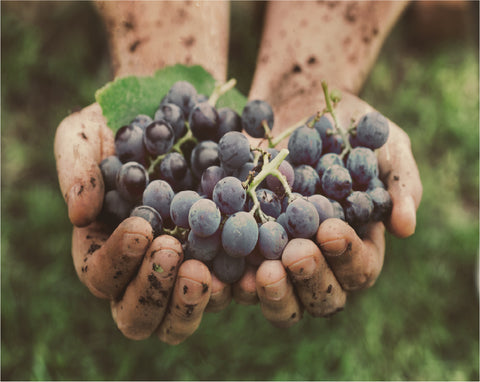
Le Bonheur The Eagle's Lair Chardonnay 2020
Stellenbosch, South Africa
100% Chardonnay | 13% ABV
We are delighted to offer this South African white wine made from 100% Chardonnay grapes. The Eagle's Lair offers a nice balance between freshness and richness. Up to 30% of this wine is aged in 300-litre oak barrels, giving an appealing roundness to the palate while still allowing the succulent fruit to shine through.
It displays a pale straw colour. On the nose, it shows elegant notes of citrus blossoms, melon, and white peach with a touch of minerality. On the palate, it is medium-bodied, with a crisp acidity. Generous citrus fruit is supported by a touch of oak. The Le Bonheur Chardonnay is known for its retained power and elegant balance, with deft use of oak.
Service: Serve chilled at 9 °C.
Food Pairing: Excellent with poultry, pork, fish, shellfish, cheese, pasta in white sauce and vegetarian dishes.
Le Bonheur winemaker, William Wilkinson, has gained a reputation as one of South Africa’s most creative and awarded winemakers. With a forever inquisitive approach to viticulture, William individually vinifies different batches, which results in site-specific building blocks, to create the authentic and classic wines. William is a former South African champion body boarder and, like the estate, still has an untamed, wild side.
With a history dating back to the 1700’s, Le Bonheur is the gateway to South Africa’s most renowned wine-producing region. It is nestled between the magnificent Simonsberg Mountains and Klapmuts Hill, with altitudes of up to 450m, aspects, and slopes all along Klapmuts Hill and four main soil types. The vines grow in a range of soils, from sandy to limestone or decomposed granite. The average yield is 8 tons per hectare.
2* (Moving on up)
Le Bonheur Wine Estate, located in South Africa and established in 1977, has been under the current ownership for 7 years. William Wilkinson, the winemaker, has been at the forefront of implementing sustainable practices.
The estate spans over 56 hectares, with 33% dedicated to vine cultivation and a significant 47% maintained as natural or semi-natural woodland. They boast an annual production volume of 30,000 hectolitres and employ between 11 and 20 permanent staff members, with a larger temporary workforce during peak season.
Le Bonheur is committed to ecological preservation through biological control and the use of natural fertilizers. They prioritize water efficiency through drip irrigation and soil moisture monitoring, adhere to IPW sustainability guidelines, and engage in biodiversity protection by installing owl houses. With an eye on the future, they aim to establish new plantations and transition to cleaner vineyards free from herbicide resistance.
The estate faces challenges like climate change, rising production costs, and a global decline in wine consumption. While they do not have a carbon reduction plan, they are noticing early rainfall and cooler climates affecting the ripening of late varietals like Cabernet Sauvignon. Their approach to winemaking focuses on understanding terroir, unique sites, and gentle extraction to produce elegant, terroir-expressive wines.
Le Bonheur Wine Estate is in the process of converting to organic farming and follows some biodynamic principles. They are also a Fair Trade certified estate and part of the Biodiversity & Wine Initiative. Although they do not have a comprehensive carbon footprint analysis, they engage actively with their local community through Fairtrade initiatives and alien vegetation clearing, especially along the Fynbos reserve on the estate.
The estate's commitment to sustainability, evidenced by comprehensive objectives and continuous reporting against targets, has earned them a 2* "Moving on Up" sustainability rating. Their journey includes using ethical sourcing criteria, offering fair pay, and providing safety measures and training to their staff. With strong female representation in leadership roles, Le Bonheur Wine Estate is setting a positive example in the wine industry for sustainable practices.
White | Still | 75cl | 13% ABV | Contains Sulphites
Cellaring: This wine will cellar well for 5 to 7 years.
Vinification: The grapes were harvested by hand at 23.5 degrees Celsius balling and received no skin contact after crushing. Each vineyard was individually vilified. Thirty percent of the blend was barrel fermented in a combination of Allier and Nevers small oak, with the balance (70%) fermented in stainless steel tanks at 15 degrees Celsius to 16 degrees Celsius. After four months of lees contact, the wine was filtered lightly and the blend assembled.
Why buy from Wine&Earth?
We care. About wine. About the planet. And about providing brilliant service.Curated
Sustainable
Free Delivery
5-Star Service
Guaranteed

Quality Organic Wines
At Wine&Earth we specialise in curating eco-friendly wines from independent producers around the world. In this collection, we feature our delicious certified organic wines and biodynamic wines.
